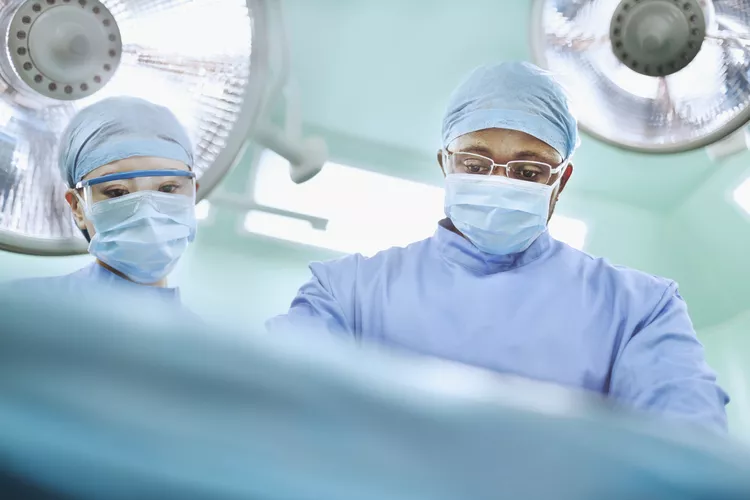Cysts: Effective Solutions at Lux Hospitals

Table of Contents
Lux Hospital specializes in comprehensive cyst treatment, offering cutting-edge medical expertise and compassionate care. Our multidisciplinary team employs state-of-the-art diagnostic techniques to accurately assess cysts, followed by personalized treatment plans tailored to each patient’s needs. With a commitment to excellence and patient-centered care, Lux Hospital ensures the highest quality outcomes for individuals seeking relief from cystic conditions.
What is Cyst?
A cyst is a sac or pocket in the body filled with fluid, air, or other material. These can form anywhere and vary in size, causing discomfort or requiring medical attention depending on the type and location. Understanding the meaning of cysts is crucial for recognizing symptoms like painful lumps and seeking appropriate treatment.
Types of Cysts
- Hemorrhagic Cyst: These contain blood and may form due to the rupture of a blood vessel within the cyst wall, often causing sudden pain.
- Ovarian Cyst: Developing within or on the surface of the ovaries, these can vary in size and may lead to pelvic pain, especially if they rupture or twist.
- Ganglion Cyst: Commonly found on the wrist, these cysts appear as lumps or bumps near joints and are filled with thick, jelly-like fluid.
- Renal Cyst: Located on the kidneys, these cyst can be simple or complex, with some associated with polycystic kidney disease.
- Dermoid Cyst: These cyst contain tissue like hair, skin, or teeth, and can occur in various parts of the body.
- Bartholin’s Cyst: Developing near the vaginal opening, these cyst can cause discomfort and pain, particularly during activities like walking or intercourse.
- Sebaceous Cyst: Forming from blocked oil glands, these cyst are often found on the face, neck, or torso and may become inflamed or infected if left untreated.
- Baker’s Cyst: Also known as popliteal cysts, these form behind the knee and are often associated with conditions like arthritis or knee injuries.
- Mucocele: Commonly occurring on the lips or inside the mouth, these cyst result from blocked salivary glands and may cause swelling or discomfort.
Treatments of Cysts
Watchful Waiting: For small, asymptomatic cyst, doctors may recommend monitoring without intervention, as many cyst resolve on their own over time.
Medications: Pain relievers such as ibuprofen or acetaminophen may be prescribed to alleviate discomfort associated with cyst. In some cases, hormonal medications can help regulate menstrual cycles and prevent ovarian cyst.
Drainage: Large or painful cysts may require drainage to remove fluid buildup. This procedure is typically performed using a needle or catheter inserted into the cyst under imaging guidance.
Surgery: Surgical removal of cyst may be necessary for those that are persistent, large, or causing complications. This can involve minimally invasive procedures such as laparoscopy or traditional open surgery, depending on the size and location of the cyst.
Laser Therapy: Some types of cyst, such as epidermoid cysts or sebaceous cyst, may be treated with laser therapy to remove the cyst’s contents and prevent recurrence.
Injection Therapy: Certain types of cysts, such as ganglion cyst, may respond to injection therapy with medications such as corticosteroids to reduce inflammation and shrink the cyst.
Radiofrequency Ablation: This minimally invasive procedure uses heat generated by radiofrequency energy to destroy the cyst’s tissue, particularly for liver or kidney cyst.
Cryoablation: Cryoablation involves freezing the cyst tissue using extremely cold temperatures, effectively destroying it. This method is often used for small, benign kidney cyst.
Aspiration: In some cases, cyst can be aspirated using a needle to remove fluid and reduce pressure, providing temporary relief from symptoms. However, this may not prevent the cyst from recurring.
Lifestyle Modifications: Making lifestyle changes such as maintaining a healthy diet, staying hydrated, and avoiding habits like smoking or excessive alcohol consumption can help prevent certain types of cysts from developing or recurring.
Why Choose Lux Hospital for Cysts?
Lux Hospital offers unparalleled expertise in cyst diagnosis and treatment, backed by a multidisciplinary team of specialists. With state-of-the-art facilities and cutting-edge technology, we provide personalized care tailored to each patient’s needs. From accurate diagnosis to innovative treatments and compassionate support, Lux Hospital ensures the highest quality care and optimal outcomes for individuals dealing with cystic conditions.
Diagnosis of Cysts
Physical Examination: Doctors may perform a physical exam to assess the size, location, and characteristics of the cyst, often feeling for lumps or abnormalities.
Imaging Tests: Imaging techniques such as ultrasound, CT scans, or MRI scans may be used to visualize the cyst and its surrounding structures in detail, helping doctors determine its size, location, and composition.
Biopsy: In some cases, a biopsy may be performed to collect a sample of tissue from the cyst for further analysis under a microscope. This can help confirm the diagnosis and rule out any underlying conditions such as cancer.
Blood Tests: Blood tests may be conducted to measure certain markers or hormones that can indicate the presence of specific types of cysts, such as ovarian cysts or cysts associated with hormonal imbalances.
Fine Needle Aspiration (FNA): During this procedure, a thin needle is inserted into the cyst to withdraw a sample of fluid for analysis. FNA can help determine whether the cyst is filled with fluid, pus, or other material, aiding in diagnosis and treatment planning.
Causes of Cysts
Blockage of Glands or Ducts: Cyst can develop when the flow of fluid or other substances within glands or ducts in the body becomes blocked, leading to the accumulation of material and the formation of a sac or pocket.
Trauma or Injury: Injury or trauma to a specific area of the body can sometimes result in the formation of a cyst as a protective response by the body, particularly if there is damage to surrounding tissues or structures.
Genetic Factors: Some individuals may have a genetic predisposition to developing certain types of cyst, such as those associated with conditions like polycystic kidney disease or familial adenomatous polyposis.
Hormonal Changes: Hormonal fluctuations, such as those that occur during puberty, menstruation, pregnancy, or menopause, can sometimes contribute to the development of cyst, particularly ovarian cyst or breast cyst.
Infections: Infections caused by bacteria, viruses, or other microorganisms can lead to the formation of cysts, particularly in areas where there is inflammation or damage to tissues, such as in the skin or reproductive organs.
Symptoms of Cysts
Pain: Depending on the location and size of the cyst, individuals may experience pain or discomfort, especially if the cyst presses on nearby tissues or organs.
Swelling: Cysts can cause swelling or a noticeable lump under the skin, particularly if they grow larger or become inflamed.
Changes in Bowel or Bladder Habits: Cysts located near the abdomen or pelvis may exert pressure on nearby organs, leading to changes in bowel movements or urination.
Pain During Intercourse or Menstruation: Cysts in the pelvic area, such as ovarian cyst, may cause pain or discomfort during sexual intercourse or menstruation.
Tips to Prevent Cysts
Maintain Healthy Habits: Follow a balanced diet, exercise regularly, and avoid smoking or excessive alcohol consumption to reduce the risk of cyst formation.
Practice Good Hygiene: Keep skin clean and dry to prevent clogged pores and the development of epidermoid cysts or acne.
Protect Against Injury: Take precautions to avoid trauma or injury to the body, particularly in areas prone to cyst formation, such as the wrists or knees.
Manage Hormonal Imbalances: For individuals with hormonal conditions such as polycystic ovary syndrome (PCOS), seek medical advice and treatment to help regulate hormone levels and prevent ovarian cysts.
Regular Medical Check-ups: Attend routine health screenings and examinations to detect any cysts early and address them before they become problematic.
Conclusion
Understanding the causes, symptoms, and prevention of cysts is crucial for maintaining overall health and well-being. By implementing preventive measures and seeking prompt medical attention for any concerning symptoms, individuals can effectively manage cystic conditions and minimize their impact on daily life. Remember, early detection and proactive management are key to ensuring a healthier future. Take charge of your health today and schedule a consultation with a healthcare professional for personalized guidance and support.


